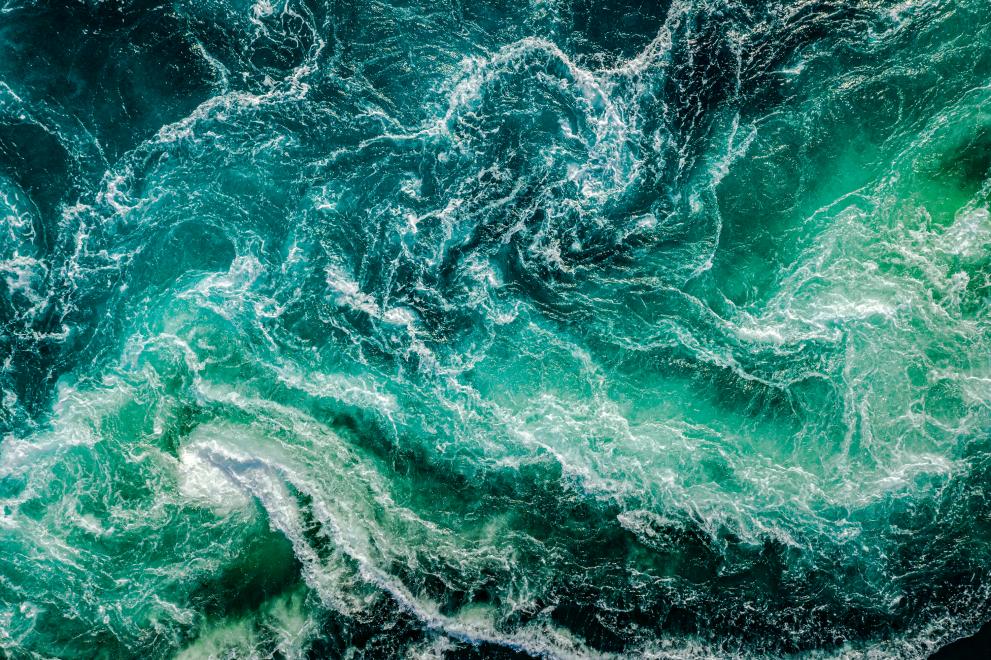
World Ocean Day
Every year on 8 June, World Ocean Day is celebrated across the globe. The day rallies organisational leaders, activists and young people to embrace collaborative conservation. Events are held all over the world to generate solutions for the preservation of biodiversity and the fight against climate change. The matter is urgent: currently, less than 17% of land and 8% of the ocean are protected. This year’s Conservation Action Focus is to safeguard at least 30% of our planet’s lands, waters and ocean by 2030. The European Commission and more than 90 countries have already committed to the 30x30 target. Fostering ground-breaking research and innovation, the EU promises to deliver concrete actions by 2030.
Let’s restore our ocean and waters
The European Union funds numerous highly innovative projects that work to preserve our blue planet. Under the Horizon Europe research and innovation framework, the European Commission has formulated the Mission 'Restore our Ocean and Waters'. It helps to implement, among others, the goals of the European Green Deal.
The Mission aims to prevent and eliminate pollution of our ocean, seas, and waters. It strives to make the blue economy climate-neutral and circular with net-zero maritime emissions. In addition, it seeks to protect 30% of the EU’s sea area and restore marine-eco systems. The EU-funded project AMBER helped to identify 25,000 km of free-flowing rivers which will also be preserved under the Mission 'Restore our Oceans and Waters'.
Researchers and policy-makers are joining forces to protect our ocean and waters. The European Research Executive Agency (REA) manages several programmes that feed into the EU Mission. On 7 June 2022 for example, it hosted the Marie Skłodowska-Curie Actions (MSCA) Cluster event on the Mission 'Restore our Ocean and Waters'. The MSCA are the EU’s flagship programme for doctoral and post-doctoral training.
The event gathered researchers from the Marie Skłodowska-Curie Actions, subject matter experts and European Commission policy-makers to exchange knowledge. The goal was clear: only if we work together, across disciplines, professions and countries, will we be able to preserve and restore our ocean and waters effectively.
Ocean and waters observation
Designing policies for sustainable ocean conservation requires in-depth observation. The All-Atlantic Ocean Research Alliance draws on the commitment of numerous countries to enhance cooperation in research and observation across the Atlantic, from Arctic to Antarctica. The EU-funded project AANChOR supports the implementation of this large-scale initiative by identifying and implementing concrete joint actions and by exploring long-term measures for collaboration and science diplomacy. It further links with the Seabed2030 Initiative, which recently discovered a giant pristine coral reef off the coast of Tahiti. This ground-breaking discovery paves the way towards a more targeted conservation of coral reefs’ biodiversity.
The MSCA-funded project MOVEMED also contributes to improving ocean observing systems. Focussing on the Mediterranean Sea, it investigated the effect of human mobility on marine mega-fauna movement using a computationally intensive data-driven approach. The project generated a unique data-base of environmental information, marine animal tracks and ship activities. It particularly assessed the potential of animal-borne sensors for ocean observation. Results derived from the project have considerable implications for ocean climate research, fisheries management and conservation management. Innovations in marine observation significantly contribute to efficient policy-making for the protection of our ocean and waters.
Sustainable aquaculture and fisheries
Fostering sustainable and healthy aquaculture is of high environmental and economic importance. The MSCA project IMPRESS trained young researchers to develop new stocking strategies for Europe’s most important and threatened freshwater fish species: Atlantic salmon and European eel and sturgeons. Overfishing and human activity have critically endangered their wild populations. Building on scientific advances, such as fish genomics and enriched hatchery, IMPRESS worked to improve survival rates of fish released into the wild.
The EU-funded SEAwise project also aims to increase fishery benefits while reducing ecosystem impact under environmental change. Drawing on a network of stakeholders, advisory bodies and scientists, the project wants to innovate the prediction of ecosystem effects on and of fishing. Assessing the impacts of environmental metrics, density dependence, predation, stock health and habitat extent will facilitate stock productivity forecasting. Both IMPRESS and SEAwise contribute to the EU’s Mission 'Restore our Ocean and Waters' in researching sustainable economic engagement with marine and freshwater ecosystems.
Future actions to protect our blue planet
Comprehensive ocean and waters observation and sustainable aquaculture and fisheries are only some of the many goals that EU-funded projects pursue. Other key targets are the prevention and elimination of pollution and the exploration of the sea for renewable energy. The EU Mission mobilises excellent research and innovation across many EU programmes.
The Horizon Europe programme, the European Maritime Fisheries and Aquaculture Fund, Invest EU and other EU programmes will provide around €500 million in seed funding during the period 2021-23, in addition to Member States’ contributions and private funding. In feeding scientific findings into policy development, the EU will significantly boost the protection of our planet’s marine and freshwater ecosystems in the years to come.
Useful Links:
EU Mission: Restore our Ocean and Waters
Restore our oceans and waters factsheet
Marie Skłodowska-Curie Actions (MSCA)
MSCA Cluster Event on Mission Ocean and Waters
Cluster 6: Food, bioeconomy, natural resources, agriculture and environment
Details
- Publication date
- 8 June 2022
- Author
- European Research Executive Agency
